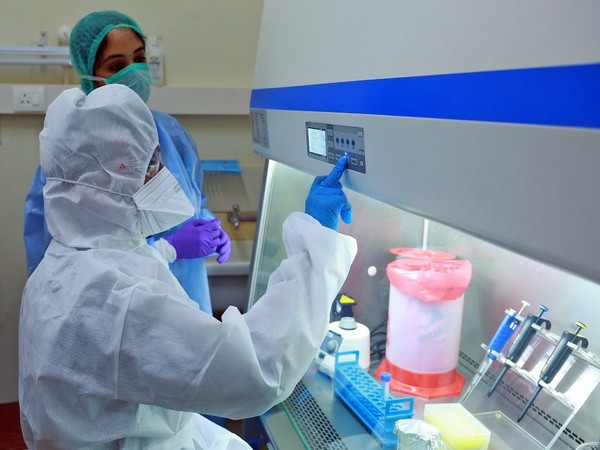COVID-19 mRNA vaccines increase risk of cardiac-related death: Florida Surgeon General
Florida Surgeon General Dr Joseph A Ladapo on Saturday (local time) recommended against receiving mRNA COVID-19 vaccines, especially to males aged 18 to 39 as it increases the risk of cardiac-related death. Read more on Dynamite News:

Florida [US]: Florida Surgeon General Dr Joseph A Ladapo on Saturday (local time) recommended against receiving mRNA COVID-19 vaccines, especially to males aged 18 to 39 as it increases the risk of cardiac-related death. "Today, we released an analysis on COVID-19 mRNA vaccines the public needs to be aware of. This analysis showed an increased risk of cardiac-related death among men 18-39. FL will not be silent on the truth, tweeted Ladapo.
The Florida Department of Health (Department) conducted an analysis through a self-controlled case series, which is a technique originally developed to evaluate vaccine safety. This studied mortality risk following mRNA COVID-19 vaccination.
Read also: Health: Researchers Discover New Cancer Treatments In Dark MatterOf Human Genome
This analysis found an 84 per cent increase in the relative incidence of cardiac-related death among males 18-39 years old within 28 days following mRNA vaccination, read an advisory of Florida Health, signed by Florida Governor Ron DeSantis and Ladapo. It further advised individuals with pre-existing cardiac conditions, such as myocarditis and pericarditis, to take particular caution when considering vaccination and discuss it with their healthcare provider.
Also Read |
Coronavirus Update: 48 more COVID-19 cases in Rajasthan, state tally reaches 945
With a high level of global immunity to COVID-19, the benefit of vaccination is likely outweighed by this abnormally high risk of cardiac-related death among men in this age group. Non-mRNA vaccines were not found to have these increased risks, read the Florida Department of Health Bulletin.
"Studying the safety and efficacy of any medications, including vaccines, is an important component of public health," said Surgeon General Dr Joseph Ladapo. "Far less attention has been paid to safety and the concerns of many individuals have been dismissed - these are important findings that should be communicated to Floridians," added Ladapo.
Meanwhile, India's first mRNA Covid-19 vaccine is likely to be available soon. The Drugs controller general of India (DCGI) is expected to give Emergency Use Authorisation to Gennova's mRNA vaccine soon. The company has conducted phase 2 and phase 3 data trials on 4000 participants to evaluate vaccine safety, immunogenicity and tolerability.
The vaccine - GEMCOVAC-19 - is the country's first homegrown mRNA COVID- 19 vaccine. According to officials at Gennova, the trial data showed that the vaccine was safe and well-tolerated. Immunogenicity measured at 2 weeks post-dose showed that GEMCOVAC-19 is non-inferior to Covishield.
Also Read |
Uttar Pradesh lifts Covid-lockdown restrictions in all districts, except 3
Read also: Researchers Identify Protein Partners That Might Repair Cardiac Muscle
The two-dose vaccine will have to be administered intramuscularly, 28 days apart. As the Covid-19 pandemic spread, an mRNA vaccine candidate was the first to enter human trials globally. The first two vaccines that were made available for use in the US were based on mRNA technology.
Unlike vaccines that put a weakened or inactivated virus in your body to activate an immune response, these two Covid-19 vaccines (Pfizer-BioNTech and Moderna) used messenger RNA or mRNA to deliver a message to your immune system.
Basically, the technology uses genetically engineered mRNA to instruct cells to make the S-protein found on the surface of the Covid-19 virus. According to reports from US-based Mayo Clinic, after vaccination, the muscle cells begin making S-protein pieces and displaying them on cell surfaces. This causes the body to create antibodies. (ANI)
 Dynamite News
Dynamite News 